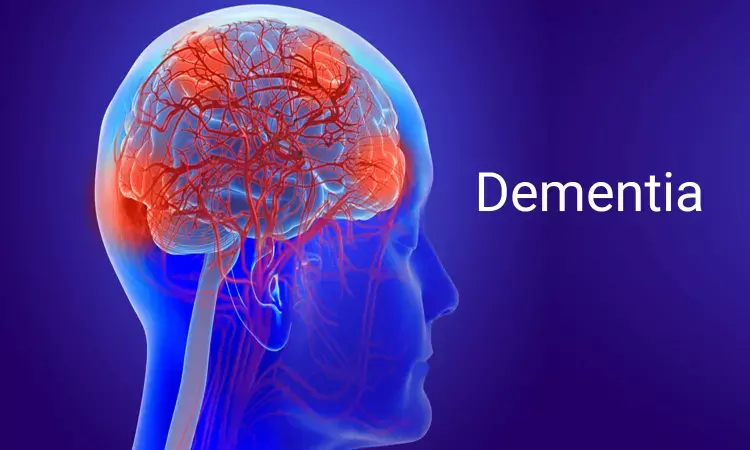- Home
- Medical news & Guidelines
- Anesthesiology
- Cardiology and CTVS
- Critical Care
- Dentistry
- Dermatology
- Diabetes and Endocrinology
- ENT
- Gastroenterology
- Medicine
- Nephrology
- Neurology
- Obstretics-Gynaecology
- Oncology
- Ophthalmology
- Orthopaedics
- Pediatrics-Neonatology
- Psychiatry
- Pulmonology
- Radiology
- Surgery
- Urology
- Laboratory Medicine
- Diet
- Nursing
- Paramedical
- Physiotherapy
- Health news
- Fact Check
- Bone Health Fact Check
- Brain Health Fact Check
- Cancer Related Fact Check
- Child Care Fact Check
- Dental and oral health fact check
- Diabetes and metabolic health fact check
- Diet and Nutrition Fact Check
- Eye and ENT Care Fact Check
- Fitness fact check
- Gut health fact check
- Heart health fact check
- Kidney health fact check
- Medical education fact check
- Men's health fact check
- Respiratory fact check
- Skin and hair care fact check
- Vaccine and Immunization fact check
- Women's health fact check
- AYUSH
- State News
- Andaman and Nicobar Islands
- Andhra Pradesh
- Arunachal Pradesh
- Assam
- Bihar
- Chandigarh
- Chattisgarh
- Dadra and Nagar Haveli
- Daman and Diu
- Delhi
- Goa
- Gujarat
- Haryana
- Himachal Pradesh
- Jammu & Kashmir
- Jharkhand
- Karnataka
- Kerala
- Ladakh
- Lakshadweep
- Madhya Pradesh
- Maharashtra
- Manipur
- Meghalaya
- Mizoram
- Nagaland
- Odisha
- Puducherry
- Punjab
- Rajasthan
- Sikkim
- Tamil Nadu
- Telangana
- Tripura
- Uttar Pradesh
- Uttrakhand
- West Bengal
- Medical Education
- Industry
Combination of food items may up or lower dementia risk

London, April 23 (IANS) It's no secret that a healthy diet benefits the brain and now, researchers say that what foods people eat together may be associated with developing the risk of dementia.
The study looked at "food networks" and found that people whose diets consisted mostly of highly-processed meats, starchy foods like potatoes, and snacks like cookies and cakes, were more likely to have dementia years later than people who ate a wider variety of healthy foods.
"There is a complex inter-connectedness of foods in a person's diet, and it is important to understand how these different connections, or food networks, may affect the brain because diet could be a promising way to prevent dementia," said study author Cecilia Samieri from the University of Bordeaux in France.
A number of studies have shown that eating a healthier diet, for example, a diet rich in green leafy vegetables, berries, nuts, whole grains and fish, may lower a person's risk of dementia. Many of those studies focused on the quantity and frequency of foods.
"Our study went one step further to look at food networks and found important differences in the ways in which food items were co-consumed in people who went on to develop dementia and those who did not," Samieri added.
The study, published in in the journal Neurology, involved 209 people with an average age of 78 who had dementia and 418 people, matched for age, sex and educational level, who did not have dementia.
Participants had completed a food questionnaire five years previously describing what types of food they ate over the year, and how frequently, from less than once a month to more than four times a day.
Researchers used the data from the food questionnaire to compare what foods were often eaten together by the patients with and without dementia.
The study found while there were few differences in the amount of individual foods that people ate, overall food groups or networks differed substantially between people who had dementia and those who did not have dementia.
According to the researchers, people who developed dementia were more likely to combine highly processed meats such as sausages, cured meats and patés with starchy foods like potatoes, alcohol, and snacks like cookies and cakes.
This may suggest that frequency with which processed meat is combined with other unhealthy foods, rather than average quantity, may be important for dementia risk.
"We found that more diversity in diet, and greater inclusion of a variety of healthy foods, is related to less dementia, in fact, we found differences in food networks that could be seen years before people with dementia were diagnosed," Samieri noted.
-- IANS
bu/na
Medical Dialogues Bureau consists of a team of passionate medical/scientific writers, led by doctors and healthcare researchers. Our team efforts to bring you updated and timely news about the important happenings of the medical and healthcare sector. Our editorial team can be reached at editorial@medicaldialogues.in.
Dr Kamal Kant Kohli-MBBS, DTCD- a chest specialist with more than 30 years of practice and a flair for writing clinical articles, Dr Kamal Kant Kohli joined Medical Dialogues as a Chief Editor of Medical News. Besides writing articles, as an editor, he proofreads and verifies all the medical content published on Medical Dialogues including those coming from journals, studies,medical conferences,guidelines etc. Email: drkohli@medicaldialogues.in. Contact no. 011-43720751


